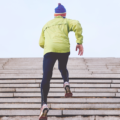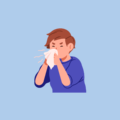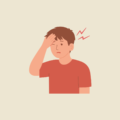Sleep & Mental Health: A Holistic View from East and West
In today’s fast-paced world, sleep has become somewhat of a luxury. We wear our late nights and early mornings like badges of productivity. But, when we start to peel back the layers—especially in clinic—it’s clear that sleep and mental health are intimately connected.
As a TCM practitioner, I often see people struggling with anxiety, low mood, or mental fatigue—and at the root of it all? A dysregulated sleep cycle. From both Western and Eastern viewpoints, sleep is not just a passive state—it’s a foundational pillar of emotional and physical well-being.
Let’s explore both lenses.
The Western Perspective: Sleep and the Nervous System
In modern biomedicine, sleep is known to play a vital role in:
- Regulating neurotransmitters like serotonin, dopamine, and GABA (which impact mood)
- Consolidating memory and processing emotions
- Reducing stress hormones, especially cortisol
Chronic sleep deprivation is associated with:
- Anxiety disorders
- Depression
- Impaired decision-making and emotional resilience
Western medicine often views mental health challenges like anxiety and insomnia through a neurochemical and psychological lens. Treatments may involve cognitive behavioral therapy (CBT), lifestyle modifications, and sometimes medication to regulate sleep or mood.
The TCM Perspective: Shen, Yin, and the Flow of Qi
In Chinese medicine, sleep is governed by the Heart, which houses the Shen (spirit or mind). When the Shen is settled, sleep comes easily. When it is disturbed, we see issues like insomnia, restless sleep, vivid dreams, or waking early with worry.
Common TCM patterns that affect sleep include:
- Heart Yin Deficiency: Difficulty falling asleep, night sweats, anxiety
- Liver Qi Stagnation: Restlessness, vivid dreams, waking between 1–3am with a racing mind
- Spleen Qi Deficiency: Overthinking, fatigue, dream-disturbed sleep
- Kidney-Heart Disharmony: Fear-based anxiety, palpitations, insomnia with night-time waking
Where Western medicine might label the problem as “anxiety,” TCM looks at the deeper pattern behind the symptoms and treats the root imbalance.
How Acupuncture Can Help:
Acupuncture has been shown to:
- Calm the nervous system by stimulating the parasympathetic (rest-and-digest) state
- Regulate the Heart and Liver systems to help process emotions
- Support digestion and Yin nourishment, which indirectly supports deep, restful sleep
- Reconnect the body and mind, especially when someone feels “in their head” or emotionally detached
A few commonly used acupuncture points for sleep and mental health include:
- HT7 (Shenmen) – Calms the spirit
- SP6 (Sanyinjiao) – Nourishes Yin, eases anxiety
- PC6 (Neiguan) – For emotional regulation and palpitations
- Anmian – A special point just for sleep!
Lifestyle Tips from a TCM Lens
- Wind Down with Intention
Reduce work and screen time before bed. Stop working or using screens at least 1 hour before bed. Create rituals—tea, journaling, or gentle breathing—to calm the Shen. - Eat Regular, Warming Meals
Avoid skipping meals or eating late at night. A nourished Spleen leads to a more stable mind. - Mind the Emotions
In TCM, unprocessed emotions can cause Qi to stagnate and disrupt sleep. Find ways to express or release—journaling, talking, acupuncture, even tears can be medicine. - Go to Bed Before 11pm
In Chinese Medicine, the Gallbladder (11pm–1am) and Liver (1–3am) are active overnight. Being asleep during this time supports emotional clarity and detoxification.
Final Thoughts
Whether you come from a Western or Eastern perspective, one truth holds: Sleep is not a luxury—it’s a necessity for emotional resilience, clear thinking, and a calm heart.
If you’re struggling with sleep or mental health, consider a holistic approach. Acupuncture, herbs, and lifestyle shifts can make a world of difference—bringing you back to yourself, one restful night at a time.
– Adriana





